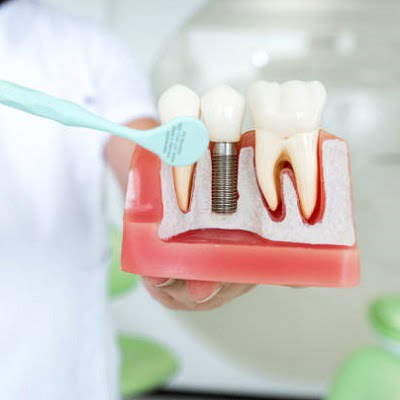
Dental implant surgery in Islamabad is a transformative procedure that can restore your smile and confidence. However, the journey to a fully recovered and functional set of teeth involves a crucial phase known as the recovery period. Understanding how to navigate this phase is essential for ensuring a smooth and successful outcome.
This informative blog will discuss the intricacies of dental implant surgery recovery, providing insights, tips, and recommendations to help you on your road to oral rehabilitation.
The Initial Days: Patience is Key
Immediately following dental implant surgery, the initial days are critical for success. Patients may experience discomfort, swelling, and bruising during this time. It’s essential to prioritize rest and allow your body to heal. Here are some key points to keep in mind during the initial phase:
Follow Post-Operative Instructions:
Your oral surgeon will provide detailed post-operative instructions. Follow these guidelines meticulously to minimize the risk of complications and promote optimal healing. This may include taking prescribed medications, adhering to a soft diet, and avoiding certain activities that could strain the surgical site.
Manage Discomfort:
It’s common to experience some discomfort after dental implant surgery. Over-the-counter pain medications or those your oral surgeon prescribes can help manage pain effectively. Applying ice packs to swollen areas can also provide relief.
Oral Hygiene:
Maintaining good oral hygiene is crucial during the recovery period. However, you may need to modify your usual oral care routine. Your surgeon will provide specific instructions on how to clean your teeth and gums without disrupting the healing process.
The Healing Process: Weeks 1-2
As the initial discomfort subsides, the focus shifts to the ongoing healing process. During the first few weeks, it’s vital to be attentive to your body’s signals and adjust your routine accordingly:
Diet Modifications:
Stick to a soft diet during the initial weeks to avoid putting excessive pressure on the implants. Opt for nutrient-rich, easy-to-chew foods, and steer clear of hot, spicy, or excessively cold items.
Avoid Tobacco and Alcohol:
Both tobacco and alcohol can impede the healing process. It’s advisable to abstain from these substances during the recovery period to promote optimal healing and reduce the risk of complications.
Regular Follow-Up Appointments:
Attend all scheduled follow-up appointments with your oral surgeon. These appointments allow the surgeon to monitor your progress, address concerns, and adjust your treatment plan.
Midway through the Recovery: Weeks 3-6
The third to sixth weeks mark a crucial phase in the recovery process, during which the initial healing begins to solidify. Here’s what you should focus on during this period:
Transition to Normal Diet:
As your oral surgeon approves, gradually transition from a soft diet to a more normal one. However, continue to avoid extremely hard or sticky foods that could put stress on the implants.
Gentle Oral Care:
Continue practising gentle oral care, ensuring you clean your teeth and gums without causing any trauma to the healing sites. Your surgeon may recommend specific oral care products tailored to your needs.
Monitor for Signs of Complications:
Stay vigilant for any signs of complications, such as persistent swelling, redness, or unusual discomfort. If you notice any abnormalities, contact your oral surgeon promptly.
Review of Future Treatment Steps:
Use this time to discuss and plan for the next steps in your dental implant journey. This may include the placement of abutments or the design and fabrication of the final prosthetic teeth.
Final Stages of Recovery: Weeks 7 and Beyond
As you approach the seventh week and beyond, most of the initial healing should be complete. However, the recovery process continues, and it’s essential to maintain a proactive approach:
Full Resumption of Normal Activities:
With your oral surgeon’s approval, you can resume normal activities, including regular exercise. Ensure you follow specific guidelines your surgeon provides to avoid potential risks.
Regular Dental Check-ups:
Even after the primary recovery phase, regular dental check-ups are crucial. Your oral health professional will monitor the condition of your implants, assess your oral hygiene practices, and provide ongoing guidance.
Nutritional Considerations:
Continue to prioritize a well-balanced diet rich in essential nutrients. Proper nutrition plays a vital role in maintaining overall health and supporting the long-term success of your dental implants.
Long-Term Oral Care:
Adopt a meticulous oral care routine to ensure the longevity of your dental implants. This includes regular brushing, flossing, and, if your oral surgeon recommends, antimicrobial mouthwashes.
The Bottom Line!
Dental implant surgery is a transformative journey culminating in a fully restored and functional smile. Navigating the recovery process with diligence, patience, and adherence to professional guidance at SKN Cosmetic Clinic Islamabad is key to achieving long-term success.
Understanding the various phases of recovery and actively participating in your oral care can pave the way for a confident and healthy oral future. Remember, your oral surgeon is your ally throughout this process, providing expertise, guidance, and support to ensure your dental implant journey is a resounding success.









